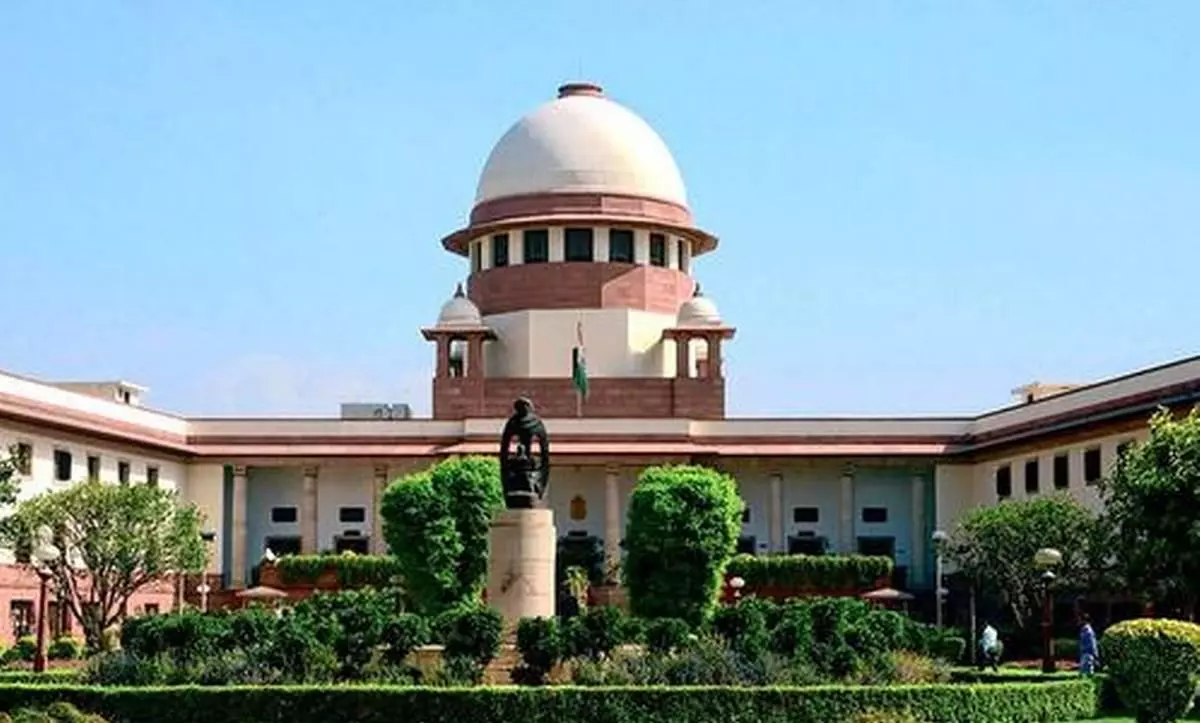
Woman challenges Hindu Succession law citing gender discrimination in SC
text_fieldsNew Delhi: A woman has challenged the Constitutional validity of section 15 of the Hindu Succession Act. The petitioner said in her plea to the Supreme Court that the provisions of the law discriminated against women based on gender.
The petition points out that the Hindu Succession Act says that upon the death of a woman, the husband's family (including his extended family) has a stronger claim to her property than her own family. The same system is applicable when the woman has acquired the property through her own skill or effort.
The petitioner, Manju Narayan Nathan, lost her daughter and son-in-law to Covid-19. The couple was childless. As per the provisions of the law, her son-in-law's family has the first right to inherit the property.
She added that her daughter was married in 2007. She described her daughter to be an independent woman with her own income and self-acquired property.
Advocate Sumeer Sodhi, appearing for the petitioner, said that the issue mentioned in the plea has an impact on every Hindu woman in the country and has far-reaching ramifications.
The petitioner argued that the Hindu Succession Act, 1956 lays down different rules for the devolution of properties of males and females. Section 15 (1) also says that the property of a Hindu woman would devolve upon her parents only if she has no living husband, children, and there are no heirs of the husband.
Since the list of husband's heirs is so exhaustive (including the distant relatives), the properties of a Hindu woman rarely devolve on her parents. Such provisions are not there when it comes to the property of a man.
The top court said that it would like to have the benefit of a High Court order. A bench of Justices S Abdul Nazeer and Krishna Murari heard the plea and asked the advocate Sumeer Sodhi why this petition is entertained under Article 32 of the Constitution, reported The News Minute.
The Supreme Court bench said that they are dealing with section 15 of the Act. "Why should we entertain a petition under Article 32? Why can't you go to the High Court, so that we can also have the benefit of the view taken by the High Court?"
Sodhi added that he has moved under Article 32, as discrimination under section 15 of the Act has been already recognised on three separate occasions. In 2012, the Bombay High Court recognised the discrimination in the provision. The Hindu Succession Amendment Bill, 2015 also brought the same discrimination before the parliament. The law Commission in the 207th report recommended that the provision be removed and the Act be amended to avoid discrimination, said The News Minute report.
The bench was not pursued while it agreed the issue required consideration. A High Court's opinion on the matter was ordered on Monday. Advocate Sodhi sought permission to withdraw the plea from the Supreme Court. The bench gave him permission and liberty to approach the High Court.























